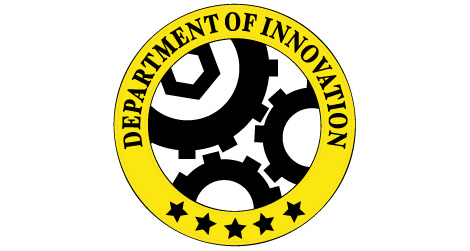Can Innovation be Departmentalized?
It has been an exceedingly dreary few days (weeks, months, years?), here in the USA, with the seeming inability of our government leaders to find solutions for significant issues like the national debt crisis, the ensuing downgrade of US Treasury debt, and the most recent and horrible loss of soldiers in Afghanistan.
Unemployment remains unacceptably high, many large organizations while reporting strong profits, are choosing to sit on cash stockpiles, rather than increase or expand their labor forces. It is a very uncertain climate, and in this uncertainty it seems like for many companies, caution and restraint make a more prudent choice than more aggressive expansion. Sure, there are still (and always will be) exceptions to this rule, and we have seen several successful tech companies like Apple, Google, and Zynga (and more), continue to increase revenue, create new products, and expand hiring. But for all the high-flying tech successes, there are perhaps more news reports of organizational contraction and mass layoffs, (RIM, Cisco, HSBC, to choose just a few).  Image - smithsonian.com
Image - smithsonian.com
What marks the key difference that allows some companies to succeed and thrive in these tough economic times compared to ones that struggle to survive, or that hope to endure through this sustained period of economic malaise with exercises in cost-cutting, hiring freezes, and even workforce contraction?
Might one of your answers be 'The ability to innovate?'
It makes sense right? Apple wins because they created new and better ways to buy and enjoy music with the iPad, transformed the mobile phone experience with the iPhone, and re-invented and continue to dominate the tablet computing space with the iPad. They have simply out-innovated (and executed, and marketed, and managed), their way to success and dominance. Heck, they might still have more cash on hand than the US government.
So the question is then, if 'innovation' is the prime cause or factor for sustained growth and success, can organizations and nations simply declare 'We are going to become more innovative', and set up a department, task force, blue-ribbon panel - whatever; and sit down and commence innovating?
I thought about this while reading some articles on a new blog on the Smithsonian.com site called 'Department of Innovation', a resource that describes itself as follows:
"...in the spirit of banging the drum for new ideas and fresh thinking, this blog will track all things innovative, not just in science and technology, but also in how we live, how we learn, how we entertain ourselves."
And while that sounds like a worthy and perhaps even productive undertaking, (there are already a few cool articles on the site), I can't help but think by (at least by name), compartmentalizing innovation into its own 'Department', might not be the right way to frame the discussion, and certainly not the right way to try to advance innovation inside organizations.
My sense (and this is completely unresearched, so if I am off base, please feel free to bash me in the comments), is that the most truly innovative organizations don't try to box up or to departmentalize innovation. They realize that innovative concepts or even creative ideas can come from anywhere and at anytime in the organization.
It seems to me that the pre-requisite for improving the chances for innovative ideas to spring up and take root in any kind of an organization is to create an environment where people feel free and safe to share ideas, explore new concepts, and have a real chance to see their work and effort impact the organization, their colleagues, their customers, and their communities. The first step to becoming more innovative might just be granting permission.
For real success today, I wonder if every department in the organization needs to be the 'Department of Innovation.'

 Steve
Steve


